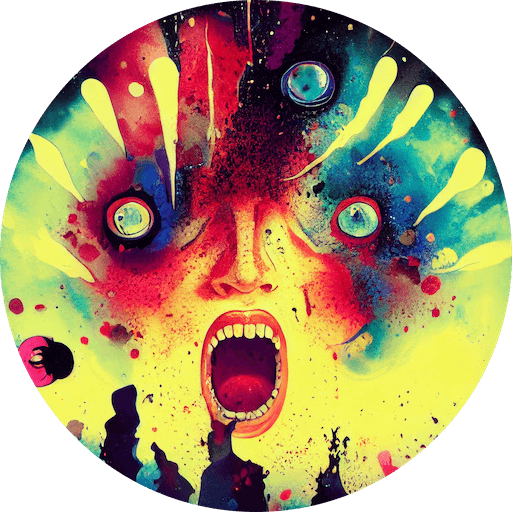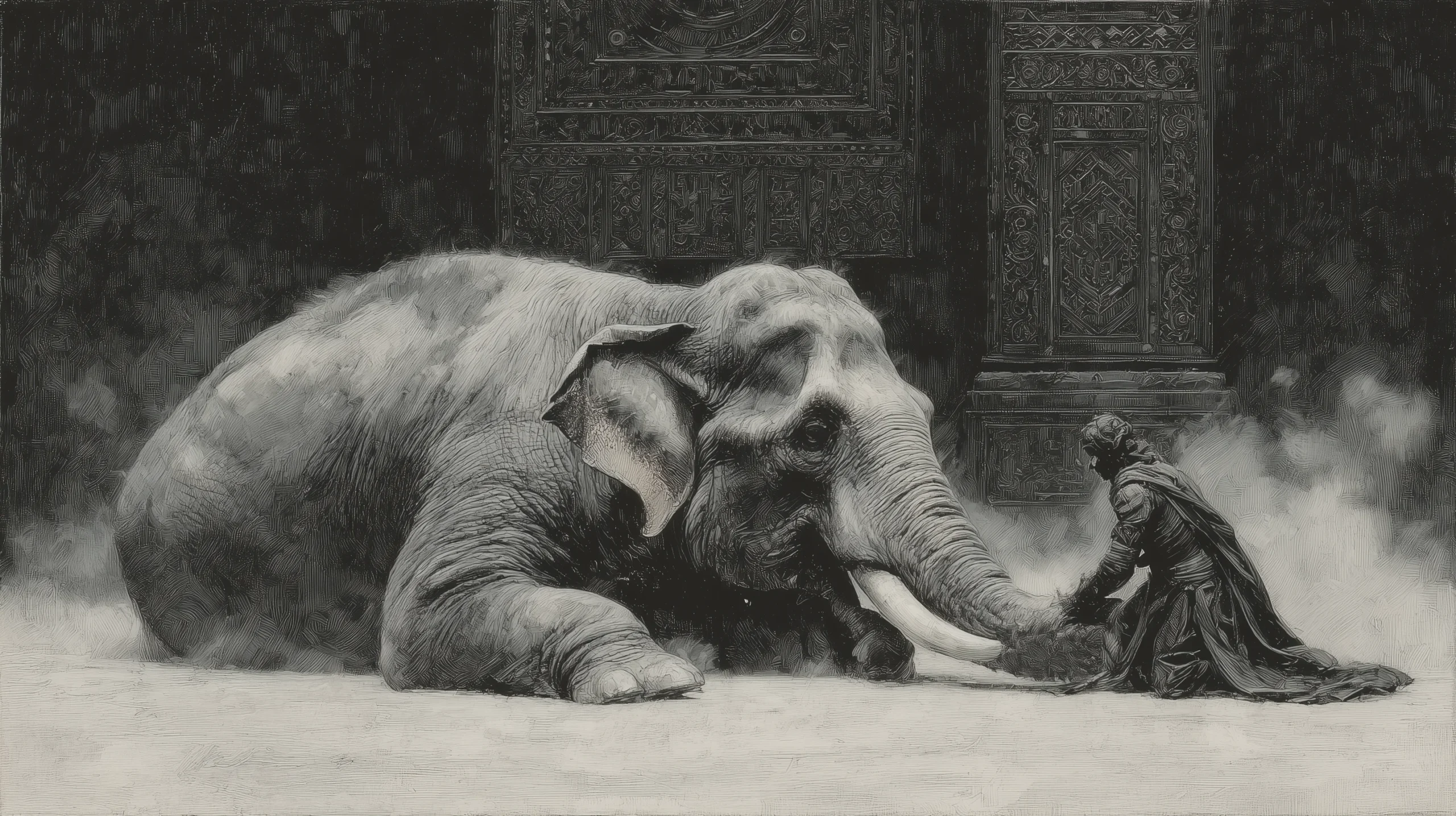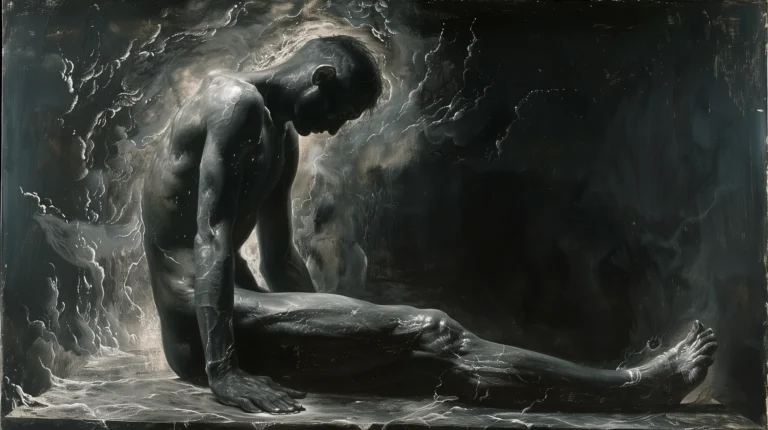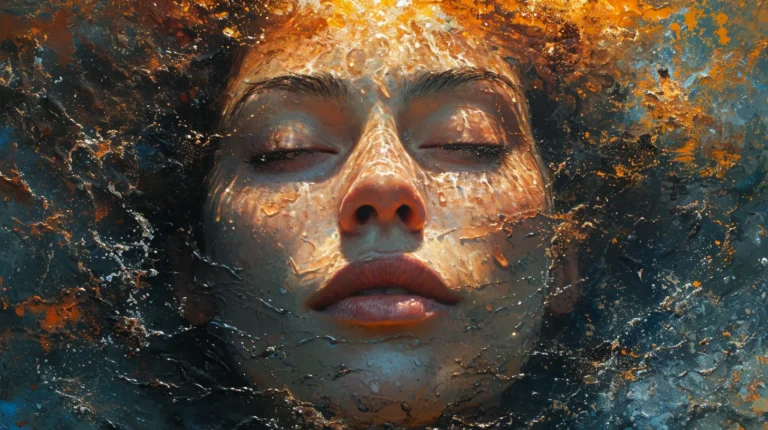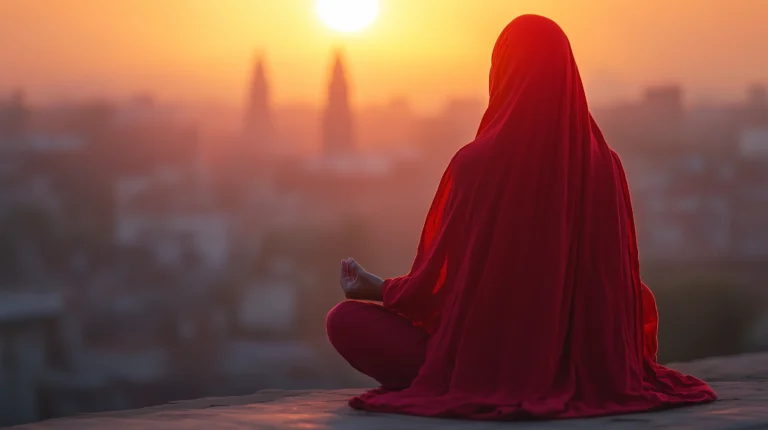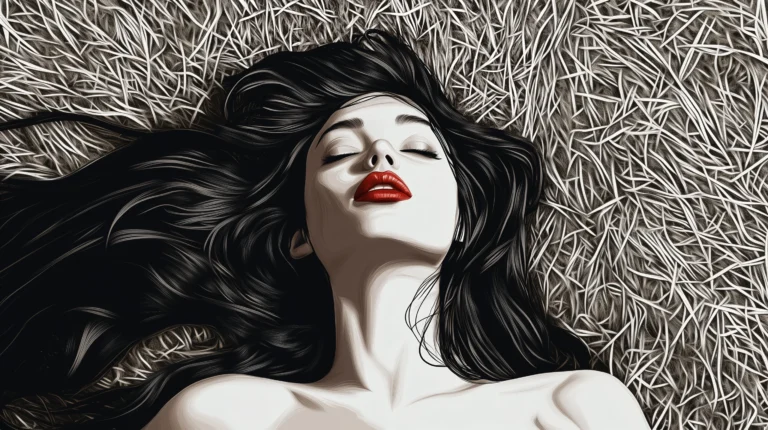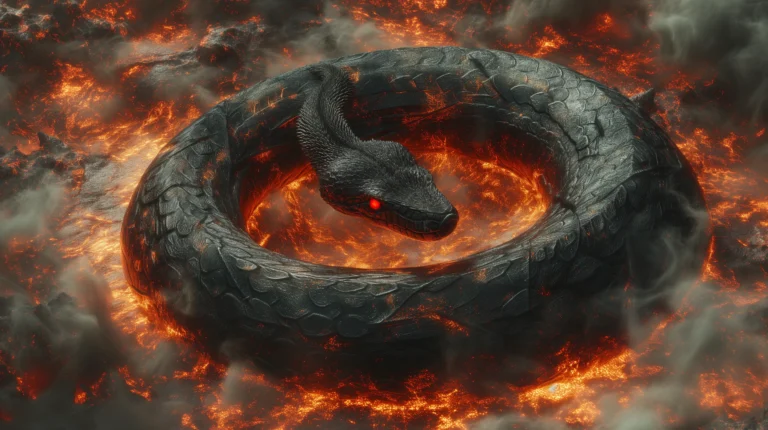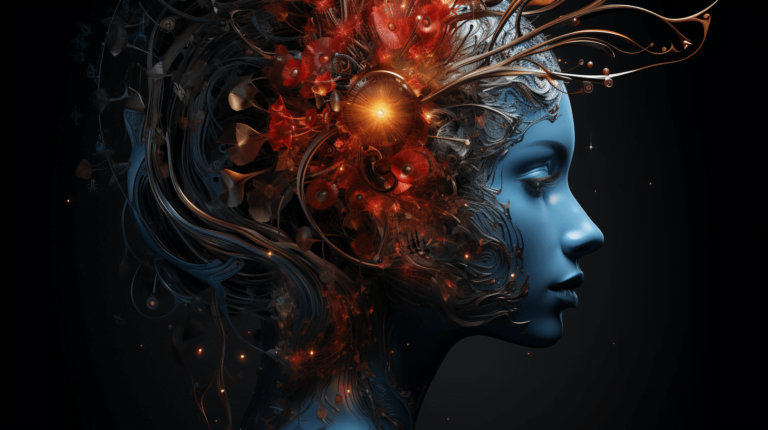No Mother, No Father, No Son: The Hero’s Realisation
A fresh look at Joseph Campbell’s lesson for the modern mind
In the dusty arena of Mathura an enraged elephant thunders toward two village boys. Krishna lifts his fist, strikes six deliberate blows, and the monster falls. At that same moment the stadium audience divides within itself. Wrestlers see a peer they cannot defeat, young women see the radiance of beauty, gods recognise their Lord, and the tyrant King Kans sees the arrival of Death. One event, many masks.
The elephant is more than an animal. It is the inertia of habit, the crushing momentum of inherited fear, the bulk of outdated structures in society and in the psyche. The first task of any hero is to stop that blind weight before conversation about freedom can even begin.
When Kans and his champions lie on the sand, mourning fills the royal balcony. Krishna speaks, and Joseph Campbell records a version of his words:
“Mother, do not grieve. No one can live and not die. To imagine oneself as possessing anything is to be mistaken; nobody is father, mother, or son. There is only the continuous round of birth and death.”
At a psychological level the statement is surgical. It cuts the thread that ties identity to possession and role. We are trained to think of ourselves as children, parents, owners, patriots. These titles help society to function but they also become fences. In times of upheaval the fence collapses and the raw fact emerges: consciousness moves from form to form while clinging to nothing permanently.
On the cosmic plane the teaching is even wider. Matter and energy dance in an endless circuit. Stars flare, cool, and collapse into the seeds of new suns. Civilisations rise, ossify, and break apart so that later cultures have room to grow. The wheel never stops turning; grief arises only when we demand that it pause for our convenience.
Campbell frames the next truth in austere language:
“The hero of yesterday becomes the tyrant of tomorrow, unless he crucifies himself today.”
Victory contains a hidden danger. The rebel who overthrows a corrupt order is tempted to sit on the vacant throne. Without self‑examination he will harden into the very shape he once opposed. Myth warns us that liberation is not a single deed but a rhythm of deeds, a willingness to dissolve yesterday’s identity every dawn.
Seen through this lens, the dragon, the ogre king, even the testy father of folklore, are not separate villains. They are frozen images of the same force that once gave life. They become obstacles only when they refuse to change shape again. In healthy cycles the older power voluntarily offers itself as fuel for the new. When it resists, the hero must take up the sword.
How does this translate into everyday life? Each of us carries an inner elephant, a private Kans, a personal realm where outdated loyalties and fears dictate policy. The work is threefold. First we recognise the lumbering charge of habit and meet it with decisive awareness. Next we confront the inner tyrant that claims our allegiance to comfort, image, or resentment. Finally we practise the daily art of self‑undoing, releasing yesterday’s certainties so that new insight can breathe.
The cost of this practice is high. Krishna’s calm dismissal of conventional ties and Jesus’ warning that truth can divide households both remind us that deep growth often unsettles polite society. Yet the alternative is stasis, and myth is clear about the fate of stagnant kingdoms: they decay into wastelands where nothing fresh can root.
Return then to the image of the fallen elephant. It is not merely a defeated beast; it is a monument to the hero’s first success against inertia. But the story does not end there. Tomorrow another elephant will charge, perhaps smaller, perhaps wearing the mask of friendship or prestige. The hero’s vigilance must equal the cosmos in persistence.
We live inside that same turning wheel. Each thought we release becomes soil for a kinder thought; each fear we face becomes space for a larger love. When grief arises, we need not deny it, yet we can also remember Krishna’s counsel: no possession is final, no role eternal. Life is a single field where forms bloom, fall, and bloom again.
To stand in that field without clinging, to strike the charging beast of habit, to refuse the vacant throne after victory, and to open wide to the next unfolding moment: this is the living hero’s task, psychological and cosmic at once.
Angela Duckworth would step into this arena and say:
“Enthusiasm is common. Endurance is rare.”
Krishna stops the elephant in one moment, yet the harder work is staying awake in every moment after. Grit means passion plus perseverance. The hero must choose both.
So keep striking the heavy habits, keep refusing the empty throne, and keep beginning again. Your talent is one thing. What you do with it, step by patient step, is the real story.
Angela Duckworth gives grit its spotlight, but many spotlights are wired to hidden power lines.
Some people start the race with a head wind at their backs—friends who open doors, schools that stamp prestige, a skin tone the gatekeepers already trust. Effort still matters, yet the track is tilted.
So before you judge another runner, check the angle of your lane. And before you give up, remember: even on a slanted field, your move is still yours to make.
Play your own game.
What is your game?
Let the crowd perform their drama.
Name yours—then step into the arena and play it through.
Crocodile crocodile — snap snap snap!
Unicorn unicorn — zip zip zap!
Aeroplane aeroplane — whoosh whoosh whirr!
Zebra zebra — stripe stripe grr!
Who are you? who are you? — la la la!
No one to blame — hey hey hey!
Check the angle of your lane — tilt tilt tilt!
Play your game — boom boom boom!
I am God, I am Devil — beyond beyond!
Centerless center — spin spin spin!
Flame with no form — fwoosh fwoosh!
Dance my dance — step step hop!
Laugh at the drama — ha ha ha!
Begin again — ding ding ding!
